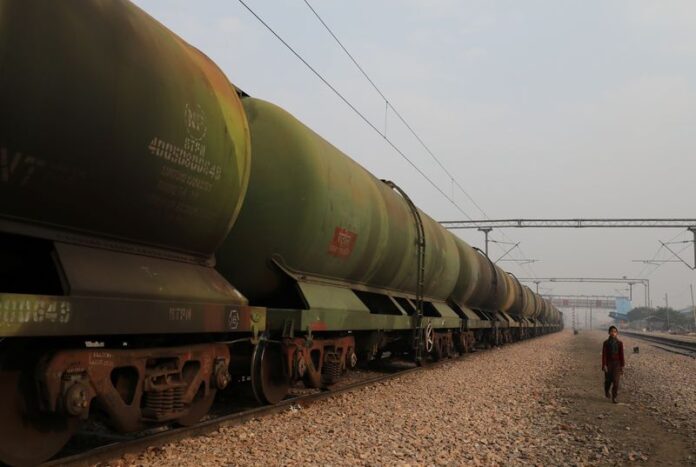NEW DELHI: Middle Eastern oil accounted for 71.5pc of India’s oil imports in July, its highest share in 26 months, while imports from Africa fell to 5pc, the lowest in at least 14 years, data from trade sources showed on Friday.
Analysts said lower fuel demand and paltry refining margins had driven a preference for Middle Eastern sour grades over sweet African barrels.
India, the world’s third-biggest oil consumer, imports more than 80pc of its oil needs.
“Since April Indian refiners are trying to save every single penny on crude purchases as refining margins are paltry and fuel demand has crashed. They are forced to cut refiners runs,” said Ehsan Ul Haq, an analyst with Refinitiv.
Indian refiners mostly tap spot markets for low sulphur or sweet grades and buy sour grades under term deals with Middle Eastern producers.
“Imports from Middle East help in saving freight cost. Refiners opted to lift committed volumes under contracts with Middle Eastern producers rather than taping costly brent-linked African oil that takes more than 20 days to reach India,” Haq added.
India’s oil imports plunged to their lowest in over 9 years in July, falling to around 3 million barrels per day as low fuel demand encouraged refiners to shut units for maintenance.
Imports from Opec countries dropped to their lowest in at least 14 years at 67.15pc in July, data showed.
Rising imports from the United States also dented Africa’s share in Indian imports.
The sources declined to be identified as they are not authorised to speak to the media.
India imported no oil from Venezuela for the second month in a row in July, the data showed.
During the month Iraq retained its top oil supplier status to India followed by Saudi Arabia and United Arab Emirates.
The United States emerged as the fourth-biggest supplier followed by Kuwait, Colombia and Qatar.
Nigeria, which was the fifth-largest supplier to India in June, dropped to eighth position.




